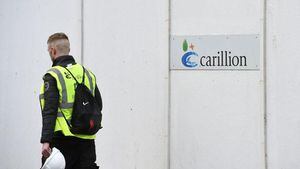Roads contractor Carillion goes bust
The firm, which employs tens of thousands of workers, reported debts totalling £900million

Building firm Carillion, which has smart motorway construction contracts with the government, has gone into liquidation, putting tens of thousands of jobs at risk.
Its collapse comes after the firm reported debts of £900million, which saw its shares drop 70 per cent in the past six months.
Now questions are being asked about what is next for the contracts the firm had with Westminster, including many with the Department for Transport.
Unions have also asked why the group continued to receive government contracts despite issuing a number of profit warnings.
According to its website, Carillion’s work with the government includes creating and maintaining strategic road networks “where we are helping to improve infrastructure and offer safer, more reliable journeys in the UK”.
Rail, Maritime and Transport Union general secretary Mick Cash said: “This is disastrous news for the workforce and disastrous news for transport and public services in Britain.
“We have been warning since Thursday night that we thought the collapse of the company was imminent.
“The blame for this lies squarely with the government who are obsessed with outsourcing key works to these high-risk private enterprises.”
The Press Association contacted both the Department for Transport and Carillion to clarify the state of transport contracts, but has yet to receive a reply.
However, the government has confirmed it shall be providing funding to maintain public services carried out by Carillion staff, subcontractors and suppliers.
Cabinet Office Minister David Lidington said: “It is regrettable that Carillion has not been able to find suitable financing options with its lenders but taxpayers cannot be expected to bail out a private sector company.
“Since profit warnings were first issued in July, the government has been closely monitoring the situation and has been in constructive discussion with Carillion while it sought to refinance its business.
“We remained hopeful that a solution could be found while putting robust contingency plans in place to prepare for every eventuality.
“It is of course disappointing that Carillion has become insolvent, but our primary responsibility has always been keep our essential public services running safely.”
Carillion chairman Philip Green said: “This is a very sad day for Carillion, for our colleagues, suppliers and customers that we have been proud to serve over many years.”





